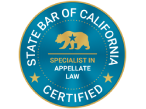Ending a marriage through divorce is often an emotional and difficult experience. One of the more complicated aspects of any divorce involves dividing property and assets. In California, the family courts split assets equally between both spouses. Although the process sounds straightforward, protecting your property requires the help of an experienced family law attorney.
What Is the Property Division Law in California?
California’s family code is a large and complex body of laws that govern how the family court system works. Although the laws are complex, the division of property follows a 50-50 approach that sees all forms of property and assets accrued during a marriage as property that is equally owned by both spouses.
The assets and land that are acquired during a marriage are considered community property in the eyes of the state, although there are a few exceptions. Examples of community property include:
- Mortgage debt
- Your home
- Loans
- Credit card debt
- Joint bank account
- Investments purchased during the marriage
With a few exceptions, anything purchased during your marriage will be considered community property by the courts. Some forms of community property may come as a surprise. Even if you have a retirement plan or pension plan in your name, any assets accrued during the marriage through that plan may be considered community property.
When Can I Keep My Property?
There are situations where property bought before the marriage or after separation is considered separate property. This means that it belongs to the spouse who bought that property. You may have to prove that it is yours with the help of a Huntington Beach property division attorney.
One common situation where a divorce allows one or both spouses to keep certain properties is if there was a prenuptial or postnuptial agreement. This legally binding agreement can override the state’s 50-50 property division laws. Work with an attorney who understands how to draft legally binding agreements that hold up in court when drafting the prenup to ensure that it is considered valid by the courts.
The day of your separation is often seen by the courts as a marking point of when your assets changed from community to separate property. The day of your separation could be the day you let your spouse know that you want to end the marriage.
In other situations, this could be the day one spouse moved out. Or, it could be the day both parties agreed that the marriage was over. From that day forward, any debts or assets acquired would be considered separate property and not community property.
Any gifts or inheritance you were given during the marriage is separate property. Separate property generally remains separate property even if the money is transferred to another asset. One example would be a car that was purchased before a marriage. If you sell that car and use the profits from that sale to purchase another vehicle, the second purchase is also considered separate property.
It is important to remember that debts can also be considered separate. If you accumulate debt after you separate, that debt will be yours alone.
Even in situations where it appears clear that a property is a community or separate property, having an attorney can help protect your rights. At the Law Offices of Lisa R. McCall, we have many years of experience successfully fighting to protect our clients’ properties.
FAQs
Q: What Is the Property Division Statute in California?
A: The property division statute in California views properties and debts accrued during marriage as community property, meaning they belong equally to both spouses. California’s family code guides the division of assets during a divorce. During a divorce, the courts will divide the property into community and separate properties. Community property will be divided, while each spouse can keep their own separate property.
Q: What Property Is Exempt from Division in a California Divorce?
A: Separate property is exempt from division in a California divorce. This includes gifts, inheritance, and any property that was acquired before the marriage or after separation. Debts accrued before marriage or after separation are considered separate property. Some assets that may appear to be separate property, like an individual retirement plan, may be subject to property division during the divorce process.
Q: Does Property Division Require Court Action?
A: The property can be divided without the need for court hearings and litigation, but a court will have to approve a divorce. When both parties agree to the terms of a divorce, the uncontested divorce can be finalized without the need for a trial or formal hearing. Coming to an agreed divorce settlement can save both parties time and money.
Q: Why Do My Business Assets Go to My Spouse?
A: Your business assets will be split with your spouse because the family courts in California do not consider who earned the money for a particular property in California. When two people are married, any property gained during that marriage is viewed as community property that belongs equally to both parties.
If you were the breadwinner in a marriage, be prepared to split the majority of your properties with your spouse. Your family law attorney will make sure that the divisions comply with state law.
Q: How Important Is It to Have an Attorney?
A: It is very important to have an attorney when going through a divorce. The process of filing for divorce is challenging, and having an attorney helps ensure that your rights are protected during the divorce proceedings. If you are unfairly deprived of property because you did not have an attorney, it can be very difficult and expensive to appeal any court decision.
Schedule Your Property Division Consultation Today
While California’s 50-50 property division laws sound simple, there are many exceptions to the law, and there is no guarantee that your spouse will agree to the equal division of property. If you have certain properties that you wish to keep, your family law attorney can negotiate a settlement that allows for the fair division of properties between both parties.
At the Law Offices of Lisa R. McCall, we work tirelessly to help our clients achieve the optimal outcome of a divorce. To start the process, contact our office today to schedule your consultation.









